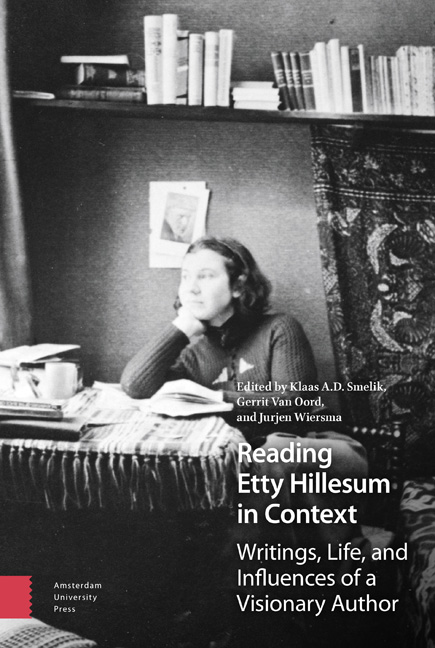5 - Agency within Nazi Constraints: Etty Hillesum and her Interpretation of the Jewish Fate
Published online by Cambridge University Press: 06 January 2021
Summary
Abstract
While the Nazi horrors were increasingly taking hold of the lives of the Jewish population, Etty Hillesum still believed that there was room for everything in life: for the mistreated and the dying in Poland, but also for jasmine and blue skies. This striking attitude ultimately culminated in her decision to go voluntarily into transit camp Westerbork. This article focuses on “agency” when examining Hillesum's attitude and her choice to go to Camp Westerbork. This term, derived from sociology, refers to the freedom of people in certain circumstances, in this case, the agency of the Jewish people during the Shoah. The main question then becomes: In what way did Etty Hillesum give shape to her own fate? The author distinguishes between Hillesum's “inner-felt agency” referring to her choice to relate to the persecution in a certain way, and her “outer agency” which refers to her decision to work for the Jewish Council, her request to be transferred to Camp Westerbork, and her decision to return to the camp after each period of leave.
Keywords: agency, fate, Massenschicksal, Jewish Council, Camp Westerbork, Etty Hillesum, chronicler
But how shall I really feel and act, I keep wondering, with a call-up card for Germany in my bag and orders to leave in a week's time? Supposing the card came tomorrow; how would I act then?
Etty Hillesum asked herself this question only a few days before receiving her call-up card for Germany, on 11 July 1942. This was, however, only shortly after she had made the decision to participate in the Jewish Massenschicksal – the term she used to describe the common Jewish fate. Despite the possibility of going into hiding, Hillesum departed voluntarily to the transit camp Westerbork, earlier the same month. One week earlier on 2 July 1942, she wrote the following passage in her journal, while in her room in the Gabriël Metsu Street in Amsterdam:
I am in Poland every day, on the battlefields, if that's what one can call them. I often see visions of poisonous green smoke; I am with the hungry, with the ill-treated and the dying, every day, but I am also with the jasmine and with that piece of sky beyond my window; there is room for everything in a single life.
- Type
- Chapter
- Information
- Reading Etty Hillesum in ContextWritings, Life, and Influences of a Visionary Author, pp. 103 - 142Publisher: Amsterdam University PressPrint publication year: 2018

